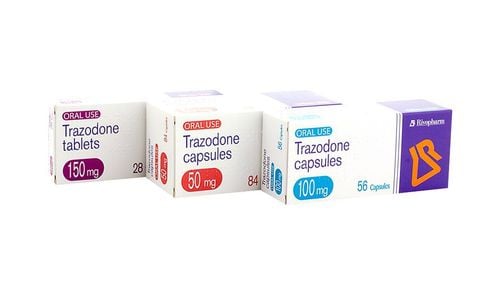This is an automatically translated article.
New research shows that people who don't get enough sleep may have an increased risk of type 2 diabetes. Lifestyle changes or pharmacological treatments to improve insomnia may help prevent and treat type 2 diabetes treatment.
1. The link between insufficient sleep and type 2 diabetes
Type 2 diabetes is a disease caused by a disorder of carbohydrate metabolism, causing blood sugar in the blood to rise above normal values. High blood sugar can affect other organs in the body.
There are many factors that can cause type 2 diabetes such as an unscientific diet, inactivity, genetic factors... In addition, recently scientists have noted One risk factor for type 2 diabetes is not getting enough sleep.
To assess the impact of sleep on type 2 diabetes, researchers used 5 sleep measures to assess the association, including: Insomnia, sleep duration, daytime sleepiness, sleep noon and morning or evening preferences (chronotype). How these 5 factors are related to average blood glucose levels as measured by the HbA1c index. This study involved 336,999 adults living in the UK.
The results of the researchers came to a number of conclusions including:
People with problems such as insufficient sleep or lack of sleep are associated with higher blood sugar; For those who do not have sleep disturbances or very rarely, sugar levels do not change much; Other factors such as daytime sleep or napping... are not known to be associated with increased blood sugar. Another study also provides us with important insights into the relationship between sleep and type 2 diabetes. This study shows that not getting enough sleep can cause higher blood sugar and play a direct role in the development of type 2 diabetes. However, it's important to remember that diabetes Type 2 diabetes is a complex condition with many risk factors. A healthy diet, regular exercise, and adequate sleep are all essential for good health for everyone, including those at risk or living with disease. type 2 diabetes.
2. The link between sleep and type 2 diabetes
Through the above studies we know the link between sleep and from there there are new approaches to lifestyle interventions or insomnia management to help prevent the disease.
Scientists also estimate that an effective treatment for insomnia could reduce sugar levels even more, helping them lose 14kg of body weight in an average height person.
The introduction of measures to treat insomnia can reduce the risk of this disease in many subjects. Reduce their economic burden and increase their quality of life.
3. Measures to help improve sleep
The application of sleep improvement measures used depends on the cause, the factors involved and the degree of insomnia. Measures to help avoid insufficient sleep include:
Sleep hygiene measures:
Go out during the day to expose the body to natural light. Helps regulate the biological clock to work more rhythmically; Exercise regularly for at least 20 to 30 minutes a day, but not before bedtime; Should sleep and wake up at fixed times, including days off; You can drink a cup of hot milk before going to bed, because tryptophan in milk helps promote sleep. But if the cause of waking up in the middle of the night is due to nocturnal urination, limit drinking water before going to bed; Do not sleep more than 30 minutes during the day; Relax your mind and body before bed. Practice relaxation and muscle relaxation exercises to help you sleep better; Avoid using alcoholic or stimulant drinks before going to bed; Limit eating in the evening before going to bed; Create a quiet sleeping space and avoid noise and light; Do not try to force yourself to sleep, if you are not sleepy, walk or read until you want to sleep. Use some herbs with sedative effects to support sleep.
When none of the above measures work, doctors recommend cognitive behavioral therapy (CBT) for insomnia and possibly a combination of short-term treatment with sleeping pills or the hormone melatonin.
Should not let the state of insomnia persist, change appropriately and treat it when it first appears, the effect will be higher. You should visit a doctor to find out the cause or factors leading to insomnia, from which there are more effective treatment measures.
In summary, not getting enough sleep puts you at a higher risk of developing type 2 diabetes than someone who isn't sleep deprived. More future studies may be needed to evaluate the effects of insomnia treatments on blood glucose levels in people with and without diabetes to establish new treatments.
Please dial HOTLINE for more information or register for an appointment HERE. Download MyVinmec app to make appointments faster and to manage your bookings easily.
Reference source: news-medical.net













